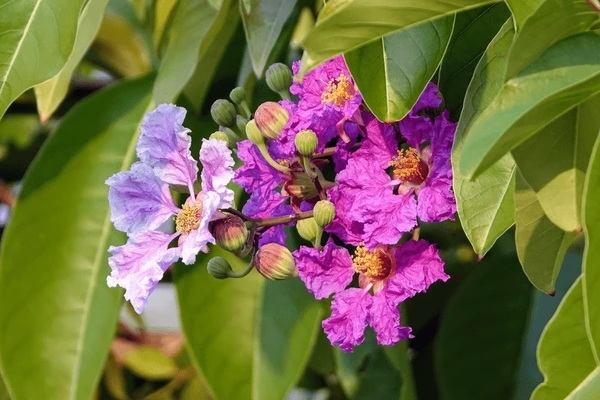Content Menu
● Introduction to Banaba Leaf Extract
>> Key Components of Banaba Leaf Extract
● Benefits of Banaba Leaf Extract
>> Anti-Diabetic Effects
>> Metabolic Syndrome
>> Antioxidant and Anti-Obesity Effects
>> Potential Anticancer Effects
● Banaba Leaf Extract Studies
>> Human Clinical Trials
>> Animal Studies
>> In Vitro Studies
● Safety and Side Effects
>> Interactions with Medications
>> Dosage and Administration
● Potential Future Applications
>> Emerging Trends in Banaba Leaf Extract Research
● Conclusion
● FAQs
>> 1. What are the primary components of banaba leaf extract?
>> 2. How does banaba leaf extract lower blood sugar levels?
>> 3. Is banaba leaf extract safe to use?
>> 4. Can banaba leaf extract help with weight loss?
>> 5. How should I consume banaba leaf extract?
● Citations:
Banaba leaf extract, derived from Lagerstroemia speciosa, has been a subject of interest in medical research due to its potential health benefits. This article will delve into the studies surrounding banaba leaf extract, exploring its effects on diabetes, metabolic syndrome, and other health conditions.

Introduction to Banaba Leaf Extract
Banaba is a medium-sized tree native to tropical Southeast Asia, widely distributed in countries like India, Malaysia, and the Philippines. Its leaves have been used in folk medicine for centuries, particularly for treating diabetes. The extract contains over 40 bioactive compounds, with corosolic acid and ellagic acid being the most notable components.
Key Components of Banaba Leaf Extract
- Corosolic Acid: Known for its hypoglycemic effects, corosolic acid can decrease blood sugar levels by enhancing glucose uptake in cells and inhibiting gluconeogenesis.
- Ellagic Acid: Offers antioxidant properties, which may contribute to the overall health benefits of banaba leaf extract.
Benefits of Banaba Leaf Extract
Anti-Diabetic Effects
Banaba leaf extract has been extensively studied for its ability to lower blood sugar levels. Studies have shown that it can significantly reduce fasting and postprandial glucose levels in both diabetic animals and human subjects. The hypoglycemic effects are attributed to corosolic acid, which increases cellular glucose uptake and decreases gluconeogenesis.
Metabolic Syndrome
Banaba leaf extract has also been found to be beneficial in managing metabolic syndrome. It can lead to remission of metabolic syndrome by reducing systolic blood pressure, fasting plasma glucose, triglycerides, VLDL, and insulin secretion.
Components of Metabolic Syndrome
| Component | Description |
| Central Obesity | Increased waist circumference |
| Elevated Blood Pressure | Systolic ≥130 mmHg or Diastolic ≥85 mmHg |
| Elevated Fasting Glucose | ≥100 mg/dL |
| Dyslipidemia | Elevated Triglycerides or Reduced HDL Cholesterol |
Antioxidant and Anti-Obesity Effects
In addition to its anti-diabetic properties, banaba leaf extract exhibits antioxidant and anti-obesity activities. These effects are beneficial for overall health, as they can help protect against oxidative stress and aid in weight management.
Potential Anticancer Effects
Some studies suggest that banaba leaf extract may have anticancer properties, promoting programmed cell death in certain cancer cells. However, more research is needed to confirm these findings.

Banaba Leaf Extract Studies
Human Clinical Trials
Human studies have shown promising results with banaba leaf extract. For instance, a small clinical trial involving patients with type 2 diabetes found that standardized extracts reduced blood glucose levels. Another study reported a significant decrease in fasting blood glucose over a year with water-soluble banaba extract.
Animal Studies
Animal studies have provided extensive insights into the mechanisms of action of banaba leaf extract. These studies have demonstrated improved insulin sensitivity, reduced serum triglycerides and cholesterol, and enhanced glucose uptake in diabetic models.
Mechanisms of Action of Banaba Leaf Extract
| Mechanism | Description |
| Enhanced Glucose Uptake | Increased cellular uptake of glucose |
| Inhibited Gluconeogenesis | Reduced glucose production in the liver |
| Improved Insulin Sensitivity | Enhanced response to insulin |
In Vitro Studies
In vitro studies have further elucidated the molecular pathways affected by banaba leaf extract. These studies have shown that the extract can modulate various signaling pathways involved in glucose metabolism and insulin signaling.
Safety and Side Effects
Banaba leaf extract is generally considered safe, with no adverse effects reported in most studies. However, it may cause loose stools in some individuals. Additionally, its blood-sugar-lowering effects could interact with conventional diabetic medications, potentially leading to hypoglycemia.
Interactions with Medications
It is crucial to monitor blood sugar levels closely when using banaba leaf extract alongside other diabetes medications. Consultation with a healthcare provider is recommended to avoid potential interactions.
Dosage and Administration
The optimal dosage of banaba leaf extract varies depending on the specific formulation and individual health status. Typically, doses range from 10 to 48 mg per day, often standardized to contain a specific amount of corosolic acid.
Potential Future Applications
Given its promising effects on metabolic health, banaba leaf extract could be explored for use in combination therapies for diabetes and metabolic syndrome. Additionally, its antioxidant properties might be beneficial in managing oxidative stress-related conditions.
Emerging Trends in Banaba Leaf Extract Research
Recent trends in research focus on developing more bioavailable formulations of banaba leaf extract to enhance its efficacy. Nanotechnology and encapsulation techniques are being explored to improve absorption and stability.
Emerging Trends in Banaba Leaf Extract Formulations
| Formulation | Description |
| Nanoparticles | Enhanced bioavailability and targeted delivery |
| Encapsulation | Improved stability and controlled release |
Conclusion
Banaba leaf extract, with its rich bioactive compounds, offers promising health benefits, particularly in managing diabetes and metabolic syndrome. While the current evidence is encouraging, further quality clinical trials are necessary to fully understand its efficacy and optimal dosing.

FAQs
1. What are the primary components of banaba leaf extract?
Banaba leaf extract contains over 40 bioactive compounds, with corosolic acid and ellagic acid being the most notable for their health benefits.
2. How does banaba leaf extract lower blood sugar levels?
Banaba leaf extract, particularly corosolic acid, enhances cellular glucose uptake and inhibits gluconeogenesis, leading to reduced blood sugar levels.
3. Is banaba leaf extract safe to use?
Banaba leaf extract is generally considered safe, but it may interact with diabetic medications and cause gastrointestinal side effects like loose stools in some individuals.
4. Can banaba leaf extract help with weight loss?
Some studies suggest that banaba leaf extract may aid in weight loss by improving insulin sensitivity and reducing body weight in diabetic models.
5. How should I consume banaba leaf extract?
Banaba leaf extract can be consumed as a tea, capsule, or powder. However, it's advisable to consult a healthcare provider before starting any new supplement regimen.
Citations:
[1] https://pubmed.ncbi.nlm.nih.gov/22095937/
[2] https://www.liebertpub.com/doi/10.1089/jmf.2021.0039?doi=10.1089%2Fjmf.2021.0039
[3] https://pmc.ncbi.nlm.nih.gov/articles/PMC3468018/
[4] https://www.mdpi.com/1424-8247/18/3/362
[5] https://www.drugs.com/npp/banaba.html
[6] https://citeseerx.ist.psu.edu/document?repid=rep1&type=pdf&doi=6d9608112538499efdfda645b6b0859e510f23a5
[7] https://www.healthline.com/nutrition/banaba-leaf
[8] https://www.webmd.com/vitamins/ai/ingredientmono-1089/banaba






























